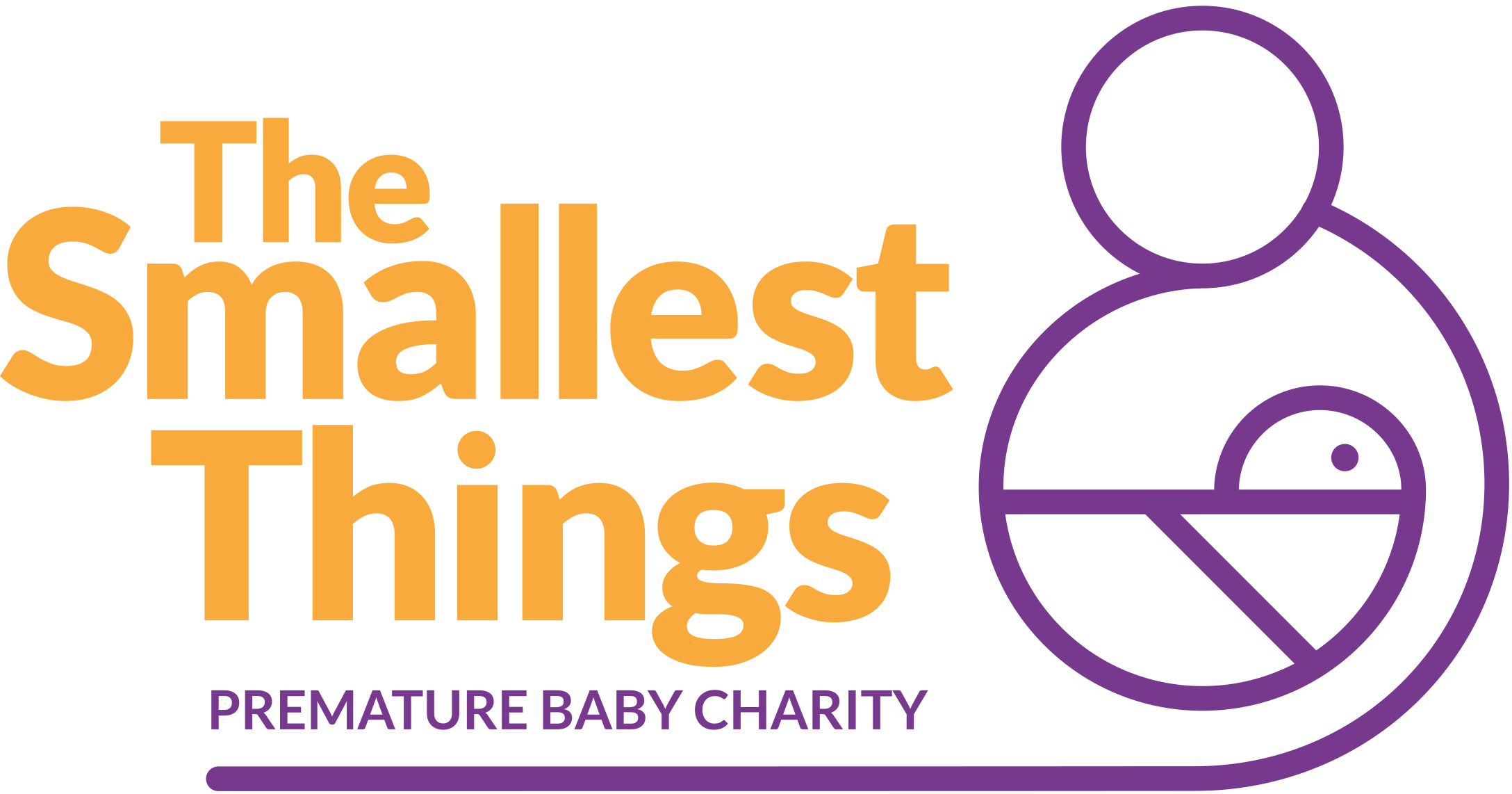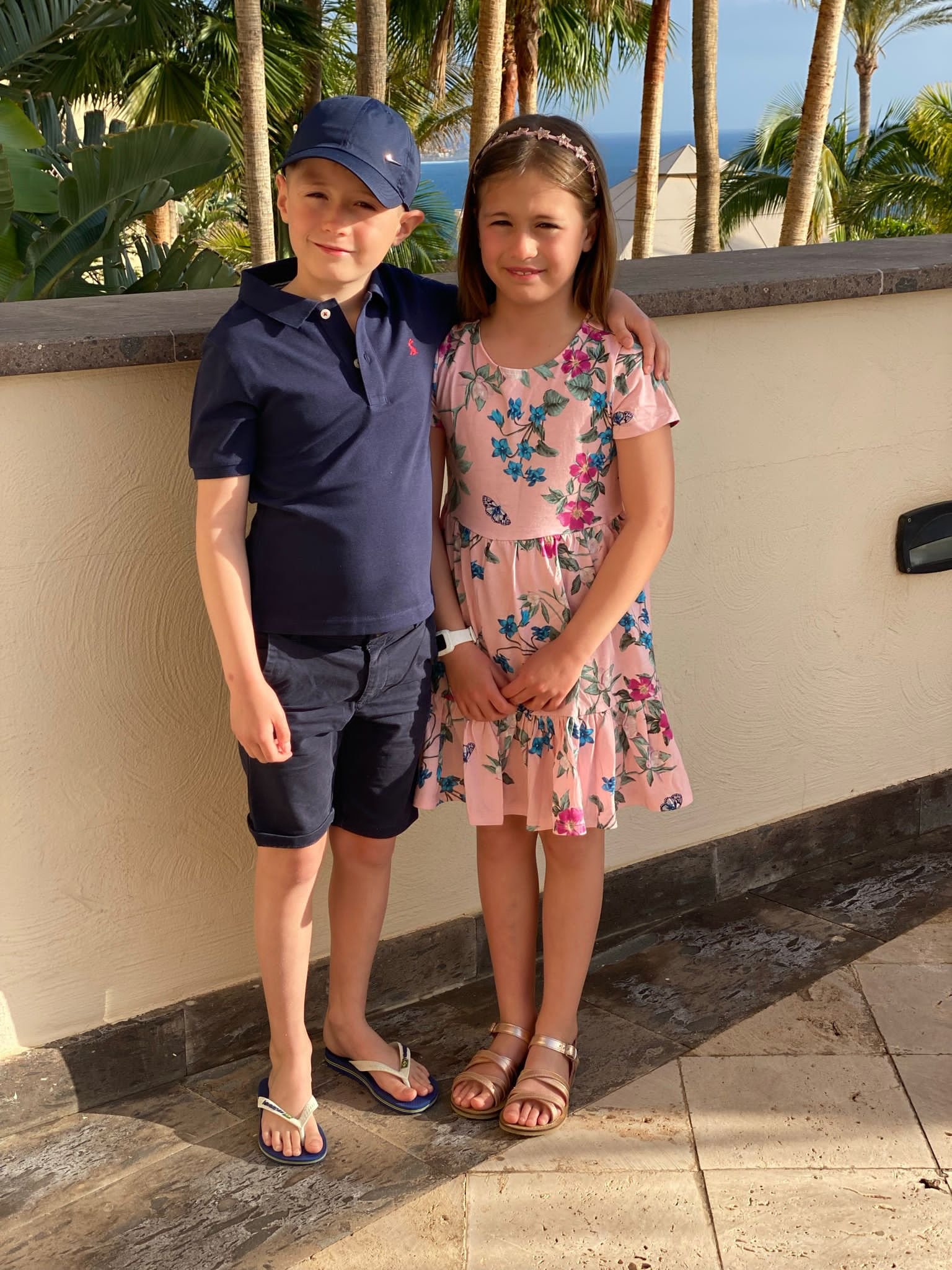World Prematurity Month 2022: Life after special care – home but not over
Joshua, age four, during one of his many readmissions to hospital
At 31 weeks I was admitted to hospital with preeclampsia, which was soon to become HELLP syndrome. The nurses had to stabilise me so it was safe enough for a c-section and, at 32 weeks exactly, my twins were born: Eloise at 3lbs (1.36kg) and Joshua at 2lbs (0.91kg). They went immediately to NICU for 24 hours and then – during a blurry week of me being discharged then readmitted to hospital – were moved to SCBU (Special Care Baby Unit).
Sitting by incubators from dawn ’til dusk
Lorna in SCBU with Joshua and Eloise, who were born at 32 weeks
Then the drum beat started of arriving at the hospital in the morning, catching glimpses of parents taking newborns home the day they were born (like the classic car seat pictures sprawled over social media), followed by nurse-led feeds, beeps, cares, kangaroo time, consultant walkrounds, and sitting by incubators from dawn ’til dusk before going home, leaving my babies in SCBU. In the early part of that time I was desperately trying to express enough milk to blend with the prescribed milk. I attached myself to a hospital pump in the middle of the night, without my babies, exhausted and still recovering from illness.
Then one day, the drum beat stopped. ‘We think you can take them home,’ said one of the doctors. ‘One baby is behind the other, but by the end of the week we think both will be there.’ A sharp well of emotion flooded my heart and lungs. Yes, it was finally time to take them home, but equally that meant flying solo without the army of nurses, equipment and support. We’d have 100% responsibility for babies still not yet at term.
Life after NICU and SCBU
Eloise and Joshua are now eight years old
My daughter Eloise, the bigger twin, remained under paediatric care for one year. She grew well in line with targets, came off Nutriprem (special premature baby formula) when she needed to and was generally well. We had one A&E visit when she was struggling to breathe and we had to go back to the hospital in an ambulance for ventilation, but overall this felt like the minimum we might expect post-SCBU checks. My daughter is now eight years old and – touch wood – has no other complexities.
Checks, appointments, referrals, operations…
For my son Joshua it would be another four and a half years of paediatric consultant care and five years until his last operation.
During that time, there were both planned and emergency hospital visits.
The planned visits began with consultant checks that continued all the way through to discharge, and these in turn led to further appointments. Joshua didn’t gain weight in the way he needed to and his prescription milk was always adjusted and increased. This led to being referred to a hospital paediatric nutritionist which meant more appointments, weigh-ins and checks, sheets of paper recording food diaries, allergen tests etc. Joshua had an issue with his gag reflex so was constantly sick and continued to lose even more weight despite best efforts.
Joshua also struggled with movement and wasn’t showing signs of walking. We were referred to a physiotherapist who told us he might never walk. A lot of physiotherapy later, he thankfully did develop and learn how to walk.
We had two operations under a urologist and multiple hospital appointments related to that too.
“Joshua also struggled with movement and wasn’t showing signs of walking. We were referred to a physiotherapist who told us he might never be able to walk”
Joshua with the book he chose for his sister after being discharged
For Joshua there were also unplanned visits. We rushed to A&E many times – so many hours back in the same hospital they were delivered in. I knew exactly where to park, what to pack and who a lot of the nurses were.
The day we’d all been waiting for
I remember very clearly the day Joshua was discharged from consultant care. I didn’t even know where to begin in thanking the consultant who had cared for Joshua from the day he was born until the day he was discharged, so I just cried.
When we left the room and walked down the corridor, one of the kind nurses said, ‘on the day of discharge we let children choose a gift from our selection’. Joshua, aged four and a half, looked through the selection of toys and books and picked up a book called Owl Babies by Martin Waddell. ‘I’ve chosen this, Mummy, to give to Eloise,’ he explained.
Eloise, my warrior who was tiny but mighty and Joshua, my courageous tiny premie fighter. Both forever my heroes.
Thanks to Lorna for sharing Joshua and Eloise’s story.




